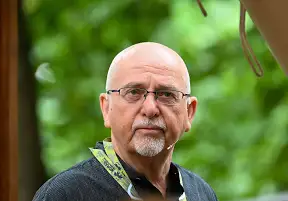
The Chicago Cubs have bid farewell to one of their long-time pitching stalwarts, as veteran right-hander James “Jimmy” Carter has opted for free agency after spending the past six seasons with the team. Though Carter’s departure marks the end of an era for the Cubs’ rotation, his future in the big leagues is now a topic of mixed expectations, with the move receiving a lukewarm reception from analysts and fans alike.
The 34-year-old Carter, a former All-Star, had been a cornerstone of the Cubs’ pitching staff since being acquired in a trade from the Detroit Tigers in 2018. Over the course of his tenure, Carter amassed a 3.80 ERA with an impressive strikeout-to-walk ratio, solidifying his place in the Cubs’ rotation during their pursuit of playoff contention. However, with the Cubs’ decision to enter a rebuilding phase and Carter’s age, both sides reportedly felt it was time to part ways.
Though Carter’s departure is undoubtedly a loss in terms of leadership and experience, his free agency is not generating the kind of excitement many might expect for a player of his pedigree. According to sources close to the Cubs’ front office, the team expressed mixed emotions about the decision, recognizing his value while acknowledging the reality of roster changes moving forward.
A So-So Grade for the Move
The reaction to Carter’s free agency from the broader baseball community has been underwhelming. Several sports analysts and insiders have weighed in on the move, and the consensus appears to lean toward a “so-so” grade for both the Cubs and the player. On one hand, Carter’s career numbers indicate that he is far from washed up, but questions remain about his durability and long-term upside, especially given the Cubs’ shifting priorities for the future.
Despite a solid 2024 campaign where Carter posted a 3.72 ERA with 174 strikeouts, his advanced metrics suggest some regression in key areas. His velocity has dipped slightly over the past couple of years, and his fastball, which was once his dominant pitch, has become more hittable. These concerns have raised doubts among potential suitors, even though Carter has expressed a desire to pitch for a contender in 2025.
The Cubs, on the other hand, have made it clear they’re prioritizing younger talent and flexibility. With several promising prospects in their minor league system, the team’s front office feels that Carter’s presence could hinder the development of the younger arms they are hoping to integrate into the major league rotation. While the decision to let him go is seen as part of a long-term strategy, it also underscores the tough reality that the Cubs are in a transition period, where veteran presence is no longer as critical as it once was.
Carter’s Next Move?
Looking ahead, Carter’s free agency is expected to be a more complex proposition. Teams in need of veteran pitching depth could still find his experience appealing, but his age and recent performance trends may keep suitors cautious. The market for starting pitchers in free agency is typically crowded, with younger arms often being more desirable. That said, clubs that are in win-now mode, such as the *New York Yankees*, *Los Angeles Dodgers*, and *Atlanta Braves*, could be interested in adding Carter to their rotation as a low-risk, high-reward option.
However, it’s possible that Carter may have to settle for a shorter-term deal, or even a one-year contract, to prove he still has the stuff to contribute at a high level. His camp is reportedly hopeful that his veteran savvy and clubhouse leadership will attract offers from teams that see him as a stabilizing force for their pitching staff.
**Cubs’ Focus Shifts to the Future**
For the Cubs, the departure of Carter further signifies their shift toward the future. With an eye on bolstering their pitching staff with younger, high-ceiling prospects, the team is looking to cut costs in areas that don’t align with their long-term strategy. While Carter was a reliable presence for the Cubs during their postseason runs, the front office has indicated that they are committed to developing a new generation of pitchers that can carry the team forward.
In the coming weeks, the Cubs are expected to make several additional moves to reshape their roster, potentially looking at both trade opportunities and free-agent signings that align more closely with their rebuilding goals. Key positions like center field and catcher are likely to be targets for upgrades, as the team seeks to add depth across the board.
**Carter’s Legacy with the Cubs**
Carter’s tenure with the Cubs will undoubtedly be remembered fondly by many fans, especially for his pivotal role during the team’s playoff pushes in 2020 and 2021. Though the Cubs ultimately fell short of a World Series championship, Carter’s steady presence on the mound provided much-needed stability during some of the franchise’s most competitive seasons in recent memory.
Despite the team’s struggles in recent years, Carter’s contributions were undeniable. He earned respect not only for his performance but also for his leadership in the clubhouse. As one of the more seasoned members of the pitching staff, he frequently mentored younger pitchers and was known for his meticulous preparation and dedication to the craft.
**The Cubs’ Rotation Outlook**
Looking ahead, the Cubs are set to rely on a mix of up-and-coming pitchers like *Brett Manning* and *Jose Cruz Jr.*, both of whom are expected to take on larger roles in 2025. While neither has the experience of a Carter, their talent has the potential to give the Cubs’ rotation a new identity. If they can stay healthy and develop as expected, the Cubs may quickly find that the decision to part ways with the veteran pitcher was a wise one.
Still, the departure of Carter is a reminder of the difficult decisions teams must make when transitioning from a period of contention to one of rebuilding. For the Cubs, moving on from Carter may have been a necessity, but it will be hard to replace the leadership and experience he brought to the mound.
**Carter’s Future in Chicago?**
While it’s unlikely that Carter will return to the Cubs in 2025, the possibility remains that he could one day finish his career in Chicago. Many former Cubs veterans, like *Jon Lester* and *Jake Arrieta*, returned to the franchise in a ceremonial role after their playing days were done. Whether or not Carter will be part of those conversations down the line remains to be seen, but for now, his time with the Cubs has come to a close, and both parties appear ready to move on.
In conclusion, while Carter’s free agency departure marks the end of a chapter for the Cubs, it also highlights the challenges of a rapidly changing roster and the shifting priorities of a franchise in transition. For fans and analysts alike, the evaluation of this move will likely continue to evolve in the months to come, as both Carter and the Cubs work to define their next steps in the ever-competitive world of Major League Baseball.







